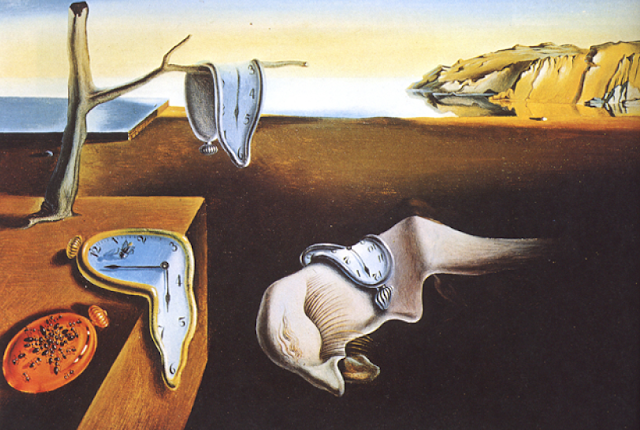 |
| The Persistence of Memory, Salvador Dalí, 1931. |
How do you feel when reading the headline “Cannabis users show increased susceptibility to false memories”? Wow! A study published several years ago demonstrated that cannabis is detrimental to episodic aspects of memory and users will exhibit increased susceptibility to memory distortion. In order to understand how drugs may alter our brain, we need to discuss the bases of neuroplasticity, the brain’s ability to change.
As you may know, we are constantly developing and changing depending on our environment. This ability of the brain to adapt and change its vital for brain development, learning and memory, shaping your personality and in all neural processes. This concept it’s not only metaphorical but a physical phenomenon where the brain itself changes across time. Specifically, this plasticity is important within a brain region called hippocampus which is associated with learning and memory.

Drug addiction is a major public health issue around the world and it’s a chronic relapsing disorder associated with a compulsive and excessive drug intake and a loss of control over drug taking, despite the negative consequences. These maladaptive behavioral changes that can be life-long are an example of behavioral plasticity as a consequence of neuroplasticity.
As part of the memory formation process, the hippocampus is essential in binding information together due to its high-level plasticity capacity. Although drugs of abuse in general alters the function of this brain region leading to the development of addiction-related behaviors, additional cognitive functions might be affected as well.
Since the last century scientists have been studying the diverse effects of cannabis in our body. For instance, studies have shown that short-term or long-term exposure to marijuana might be associated with anxiety, psychosis and cognitive deficits. On the other side, people have reported analgesia, happiness, social benefits and relaxation following cannabis use. In terms of learning and memory, studies with animal models and humans have reported that acute use of cannabis can be associated with deficits in spatial learning and memory. Also, users during the withdrawal phase of marijuana addiction have presented cognitive deficits involving mathematical skills, verbal expression and creating and retrieving verbal memories.
These deficits associated with cannabinoids are due most likely to the action of cannabis in the endocannabinoid system that disrupts the normal plasticity in the brain, specifically in the hippocampus, leading to impaired learning and memory. As you might expect, using cannabis during adolescence might over activate the endocannabinoid system leading to alterations in brain development that can be long-lasting impacting adult cerebral function and plasticity.
Knowing the effect of cannabis on hippocampal neuroplasticity, it is not surprising that cannabis might compromise memory and cognitive mechanisms required on reality monitoring leading to memory distortions as the study presented at the beginning of this article. This research suggest that it is not due to a direct damage of the hippocampus but an impairment in the plasticity required to retrieve memories and differentiate between illusions and reality.
Nowadays, there is a huge debate of using cannabinoids to treat diverse health diseases. Although many studies are focused on characterizing the therapeutic potential of cannabidiol, the long-term health implications remain unknown. The modulation of learning and memory induced by cannabidiol require additional studies to fully understand the neurobiology of these effects. We must assess the overall therapeutic potential and side effects of using cannabis as a novel pharmacotherapy.


Comments
Post a Comment